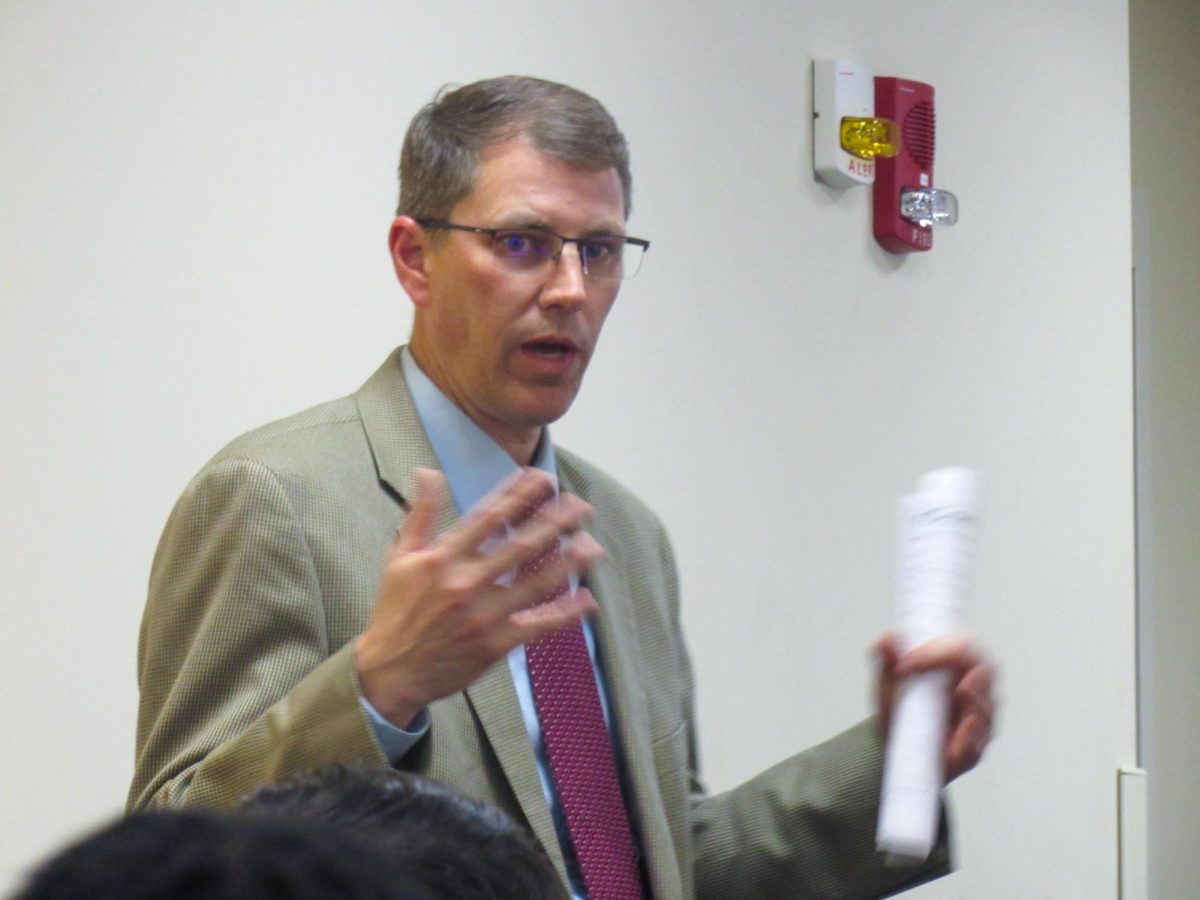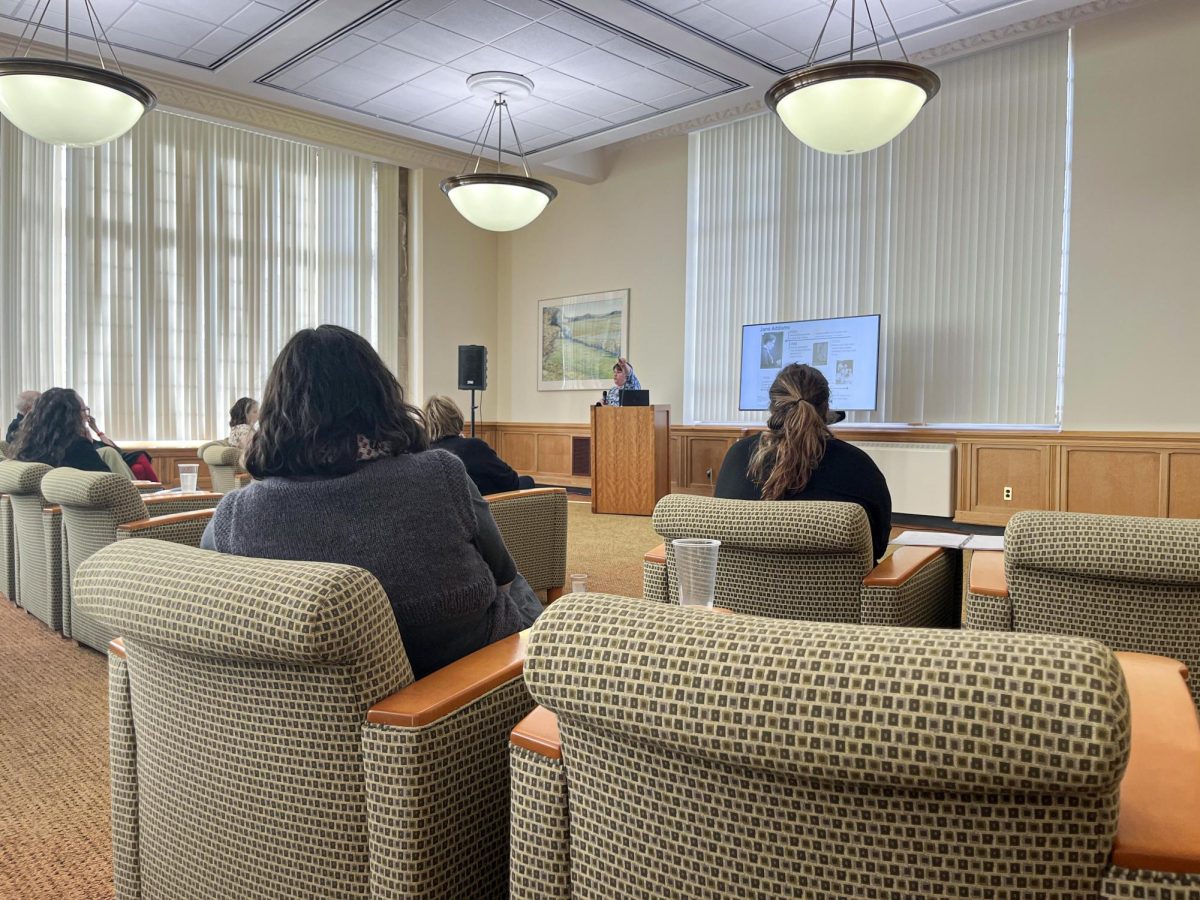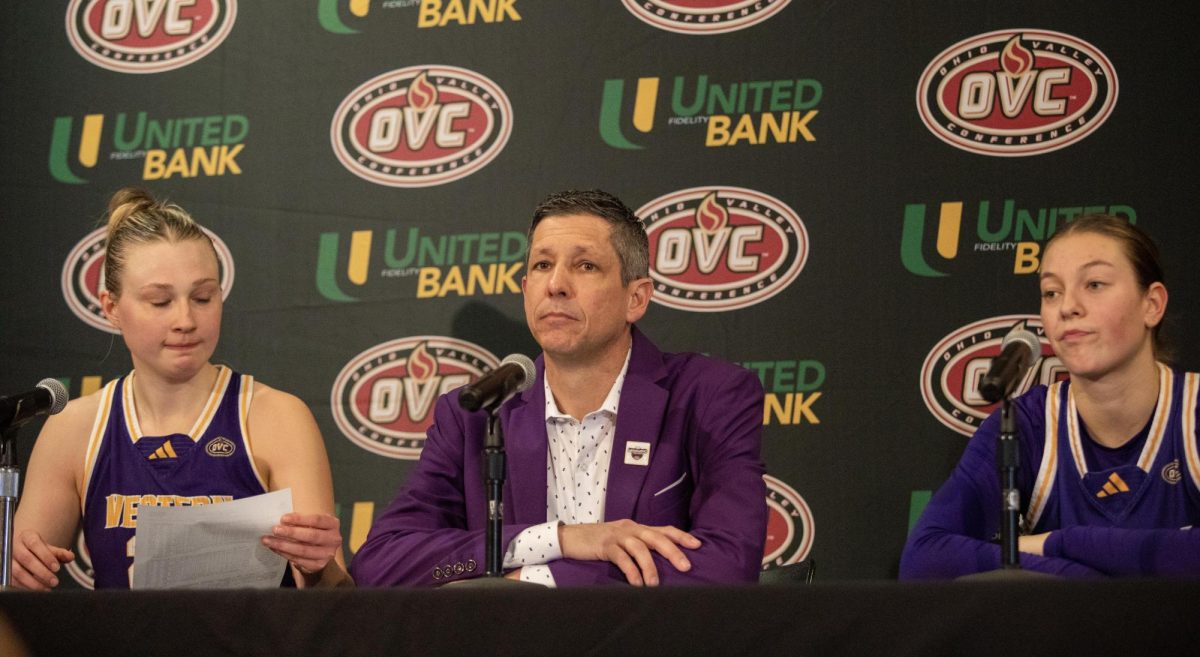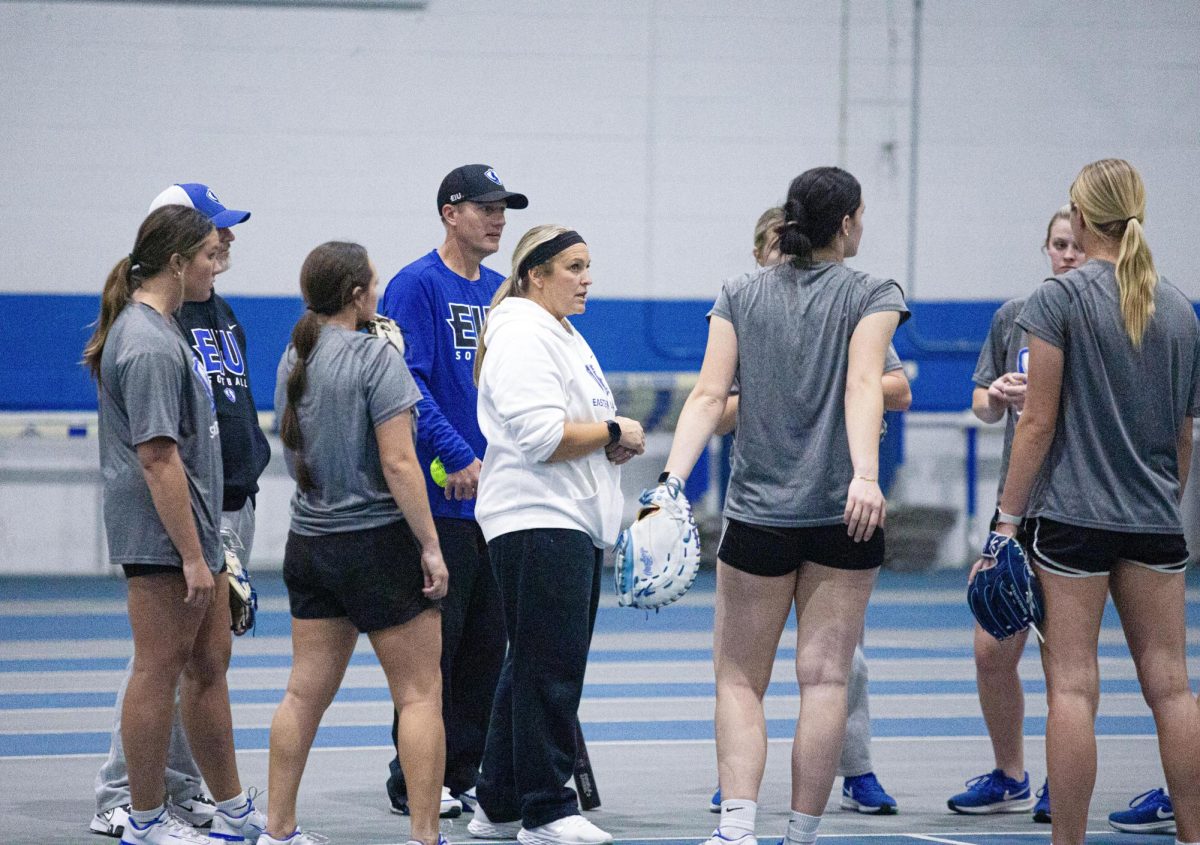Preventative measures against cheating enforced campus wide
Eastern takes as many preventative measures as possible to prevent cheating and carry out the consequences when a student is caught, said the associate director of Student Standards.
Shawn Peoples, the associate director of Student Standards, said all departments uphold the standards of academic integrity that are outlined in the Student Code of Conduct, which all students are informed of when they enroll at Eastern.
“The academic penalty that a student may receive from a faculty member may vary based on the instructor,” he said. “The instructor issues an academic penalty for students who have an academic misconduct violation in their class.”
Peoples said the faculty member will decide whether the student will be punished with an “F” on the assignment or will fail the course as a whole.
He said Student Standards does not separate violations by major, so it is difficult to tell whether or not cheating varies from major to major.
In addition to the penalty a student receives from the instructor, a student may be required to complete an additional academic program that is meant to prevent future cheating or suffer greater consequences.
“The student may be assigned to complete an educational program focusing on academic integrity,” Peoples said. “They could also be placed on University Disciplinary Probation, or they could be suspended from the University.”
The process ultimately entails a faculty member documenting the instance of academic misconduct and submitting the necessary paperwork to the Office of Student Standards.
Dana Ringuette, chairman of the English department, said cheating is often circumstantial and differs from situation to situation.
“We encourage all of our faculty to report plagiarism to judicial standards, even if the situation is resolved,” he said. “We also encourage faculty to talk to students one-on-one and determine the consequences.”
Ringuette said cheating in the English department typically results in the student failing the course and having to retake it.
“We try to resolve cheating before it even happens by teaching borderlines in class and what plagiarism exactly is,” he said.
Ringuette said circumstances have changed over the past 20 years with the growing use of the Internet, and different definitions of cheating have been defined.
He said the rate of cheating he has seen in the English department has not gotten any better or worse over the years, and has stayed fairly consistent.
“I wouldn’t say it’s an epidemic or anything, but we do try to prevent cheating as much as possible before it even begins,” Ringuette said.
Peoples said there has been no real trend in cheating at Eastern in previous years.
In the 2009 to 2010 school year, there were 82 students found in violation of academic dishonesty.
In 2010 to 2011, there were 112 and 90 in the 2011 to 2012 school year.
“(These violations) would include any violations that fall under our academic integrity policy including cheating, plagiarism, etc.,” he said.
The types of assignments students are typically cited on include plagiarism on writing assignments and cheating on exams, quizzes or labs, Peoples said.
Though cheating does occur, professors try to make their standards as clear as possible at the beginning of each semester by outlining the statement in their syllabus.
“Faculty members assist in upholding academic actions by submitting documentation to the Office of Student Standards so that students who violate the policy can be held accountable for their actions,” Peoples said.
He said Eastern upholds its standards by enforcing the Student Code of Conduct.
“We want our students to be successful at the University and as an institution, we have certain expectations of our students as it relates to their behavior and the expectations outlined in the Student Code of Conduct,” he said.
Robyn Dexter can be reached at 581-2812 or redexter@eiu.edu.









![[Thumbnail Edition] Eastern Illinois University baseball's hitting coach and recruiting coordinator Mike Pugliese urges players on the team to increase their effort after a slow start to its pregame routine at the team's first intrasquad scrimmage of the season at O'Brien Field on Jan. 31, 2025.](https://www.dailyeasternnews.com/wp-content/uploads/2025/03/BB_02_O-1-e1741909628540-1200x702.jpg)
![[Thumbnail Edition] Senior tennis player Luisa Renovales Salazar hits the tennis ball with her racket at the Darling Courts at the Eastern Illinois University campus in Charleston, ILL.](https://www.dailyeasternnews.com/wp-content/uploads/2025/03/Tennis_01_O-1-e1741807434552-1200x670.jpg)
![[Thumbnail Edition] Senior right-handed pitcher Tyler Conklin pitching in the Eastern Illinois University baseball team's intrasquad scrimmage at O'Brien Field in Charleston, Illinois on Jan. 31.](https://www.dailyeasternnews.com/wp-content/uploads/2025/03/TC_01_O-e1741567955534-1200x669.jpg)





![[Thumbnail Edition] Senior, forward Macy McGlone finds an open teammate to pass the ball too during the game against the Tennessee State Tigers 69-49, in Groniger Arena on the Eastern Illinois University campus, Charleston Ill.](https://www.dailyeasternnews.com/wp-content/uploads/2025/03/WBB_02_O-1-e1741228987440-1200x692.jpg)


















![E[Thumbnail Edition] Eastern Illinois softball freshman utility player Abbi Hatton deciding to throw the softball to home plate in a fielding drill during softball practice at the field house in Groniger arena on Tuesday Feb. 11.](https://www.dailyeasternnews.com/wp-content/uploads/2025/03/SB_03_O-e1741208880750-1-e1741209739187-1200x815.jpg)















![The Weeklings lead guitarist John Merjave [Left] and guitarist Bob Burger [Right] perform "I Am the Walrus" at The Weeklings Beatles Bash concert in the Dvorak Concert Hall on Saturday.](https://www.dailyeasternnews.com/wp-content/uploads/2025/03/WL_01_O-1200x900.jpg)
![The team listens as its captain Patience Cox [Number 25] lectures to them about what's appropriate to talk about through practice during "The Wolves" on Thursday, March 6, in the Black Box Theatre in the Doudna Fine Arts Center in Charleston, Ill.](https://www.dailyeasternnews.com/wp-content/uploads/2025/03/WolvesPre-12-1200x800.jpg)
















